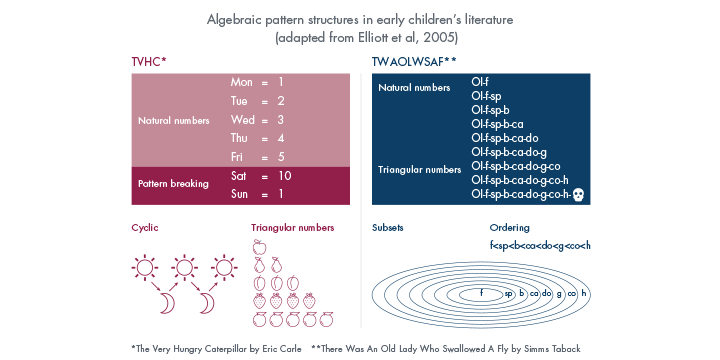11 April 2018

How can early algebraic thinking be introduced?
- Algebra is difficult to define and different definitions will determine how and when algebraic thinking is introduced to students
- Generational, transformational and meta-level activities are possible categories of algebraic thinking
- It may be better to teach algebraic thinking in a less discrete manner than some curricula suggest
- Introducing algebraic thinking early in the mathematics curriculum can be effective, as young students may be more successful at thinking algebraically than previously thought
- Introducing algebraic thinking can be done through the general to the particular or vice versa
- Approaching algebraic thinking through developing students’ notion of equivalence is effective
- Using technology can enhance algebraic thinking by providing more contexts and representations
View EspressoView in Norwegian